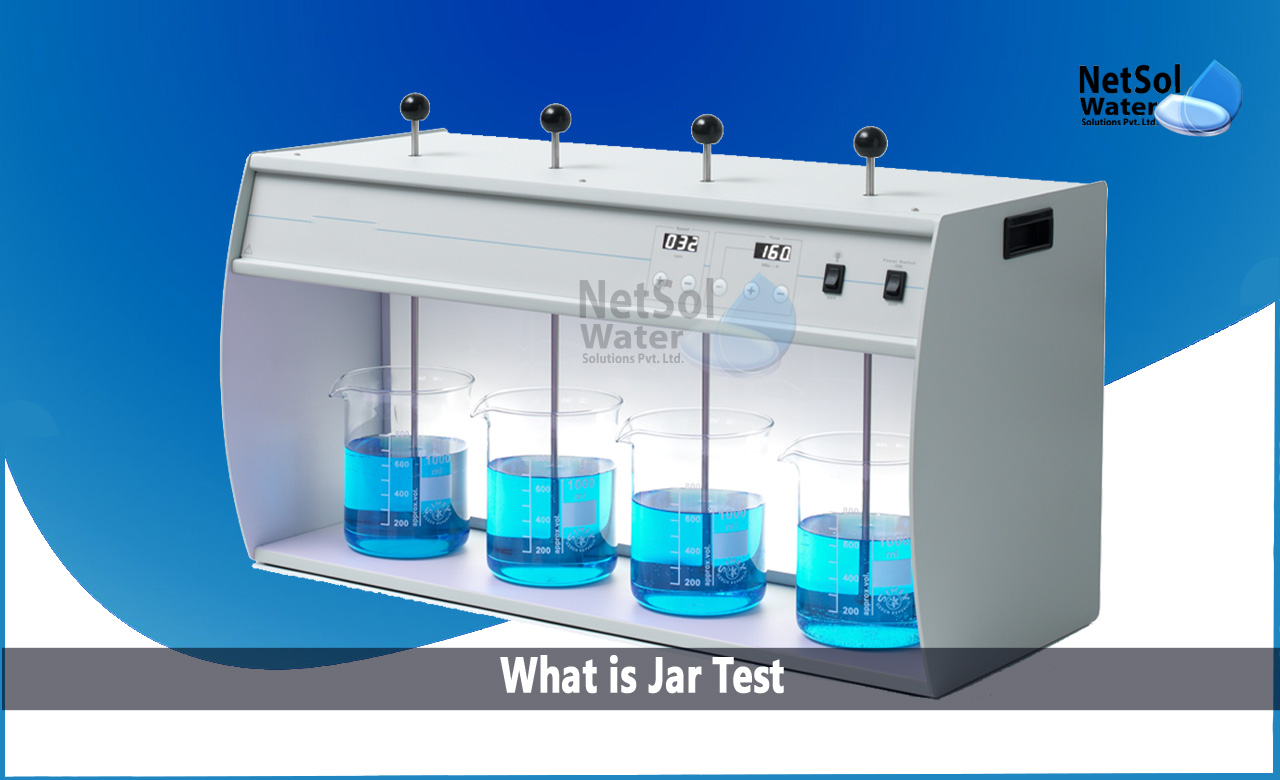Every water treatment process requires flocculation or coagulation, which is a necessary step for sedimentation, filtration, and disinfection prior to distributing water, for residential and commercial use. In this regards, a pilot-scale laboratory test is used, which is known as the jar test. The test's objective is to determine the minimal coagulant dose necessary to meet specific water quality objectives.
Now, let us discuss in detail about it.
What is Jar test?
A pilot-scale laboratory test known as the "jar test" replicates coagulation or flocculation, using various chemical dosages. In other words, the jar test aids in determining the proper dosage of treatment chemicals, i.e., the dose utilised to treat the water is the lowest dose of chemicals that results in a suitable settling.
The Jar Test makes it possible to choose and dose chemical coagulants properly, in order to remove suspended particles and other contaminants from water, which has been treated in wastewater or water treatment plants.
In fact, the findings of the laboratory Jar test, which simulates full-scale operation in water treatment plants, are what determine the choice and dosage of the chemical coagulants.
Coagulants used in Jar test
The three most popular coagulants are iron salts (ferric or ferrous), lime (calcium hydroxide), and alum (aluminium sulphate).
Steps involved in Jar test
The steps involved in jar testing can be summed up as follows:
1: Each and every beaker of water sample is treated. These are treated with different dose of chemicals;
2: There are other parameters which may be altered besides the dosage, such as the chemical types, the mixing rate, the aeration level/time, the filtration type;
3: By comparing the final water quality, the effectiveness of the various chemical treatments can be determined;
4: Jar testing is typically done on many beakers at once, with the findings from the first test influencing the choice of parameter quantities in the later tests;
5: By comparing the ultimate water quality achieved in each beaker, the effect of the varied treatment parameters may be identified.
What is the frequency of jar testing?
Every time a chemical is changed, a new pump, a new quick mix motor, a new floc motor, or a new chemical feeder is installed. Jar testing should be carried out on a monthly, weekly, daily, or seasonal (temperature) basis. Jar testing does not need to be done on a regular basis, but the more it is done, the more efficiently the plant will run. Thus, the secret to running the plant more effectively is its optimisation.
Conclusion
The operator then conducts a series of tests to compare the outcomes of various dosages of flocculation agents, at various pH ranges in order to establish the ideal floc size for a given plant. The systems filter diameters and other factors will determine the appropriate floc size.
Leading manufacturer and supplier of water treatment plants & wastewater treatment plants in India
Netsol Water is the leading manufacturer, supplier, and exporter of a quality selection of water treatment plants and wastewater treatment plants in India.
We also provide reverse osmosis plants, water softeners, effluent treatment plants, DM plants, Ultra filtration plants, UV water purification systems, sewage treatment plants, ZLD plants, AMC, O&M, and other goods and services. We provide water treatment solutions and Jar testing services to businesses including automotive, beverages, pulp & paper, refineries, pharmaceutical, textile, hotels, schools, hospitals, office buildings, etc.
Call us at +91 9650608473 or email at enquiry@netsolwater.com for further information.



